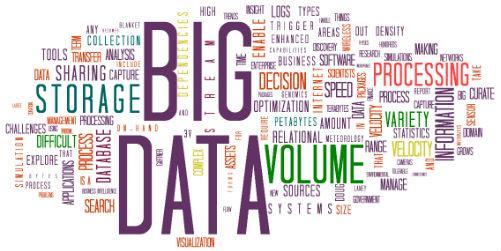 When talking about Big Data, they refer to a set of legal aspects, related to the privacy of personal data and the reuse of data collected for purposes other than the potential new uses that may occur after its collection.
When talking about Big Data, they refer to a set of legal aspects, related to the privacy of personal data and the reuse of data collected for purposes other than the potential new uses that may occur after its collection.
By:
Luis Fernando Gutierrez Cano
Luis Jorge Orcasitas Pacheco
In this second installment with Elias Said Hung, PhD, we talk about fundamental aspects of the digital television environment, the digital ignition from its development, the impacts and opportunities. It also deals with important aspects for the development of DTT such as big data and education processes.
We recall that Elías Said Hung, is a doctor from the Complutense University of Madrid and Sociologist from the Central University of Venezuela. He is currently a professor-researcher at the Universidad del Norte de Barranquilla and teaches in the Department of Social Communication-Journalism of this same university. He is director of the education observatory of the Universidad del Norte and author of the book: Communicative Transformations in the Digital Age, published in 2009 by Ediciones Uninorte.
Authors: You repeatedly refer to the term big data as a fundamental issue for an ordinary citizen of this country; we would like you to explain to the readers of TVyVideo+Radio the precise definition of Big Data and the implications of this system in the framework of digital television.
Elías Said Hung: The phenomenon of Big Data is fundamental in the processes of any social media platform; Why?, because there they give me all the information that can be used for everything you can imagine: to know what has been the tendency or political orientation of a young age group, to know what are the latent issues in terms of a certain area, among other aspects; right now, generalist social media is losing more and more strength and platforms are being created that are more oriented to specific populations; in the case of doctors ; for example, through Big Data and the interaction generated from these social media channels, health professionals can know what medicines have been and what have been the main problems and causes of cancer that the medical community has treated in those platforms.
Not everyone has the capabilities and not all institutions have the human and infrastructure capacities to take advantage of this phenomenon. Big data is being used, mainly, by companies and corporate intelligence departments of economic sectors that have taken leadership around what is exposed here (e.g. banking sector), in order to know what the risk profile of customers is; for example, whether a client has to be given a mortgage or not, or how many mortgages he needs or, simply, know what he likes; what your main customers don't like.
Authors: What is the power of Big Data?
Elias Said Hung: The power of data is so great that you can do whatever your imagination can think of. What happens is that of course when talking about Big Data, they allude to a set of legal aspects, related to the privacy of personal data and the reuse of data collected for purposes unrelated to the potential new uses that may occur after its collection.
Despite the many debates surrounding the phenomenon discussed here, the capacity for analysis of a huge amount of data, until not so long ago impossible to be processed, can be used, at least potentially, in a socially responsible way, not only in a purely business environment.
Such is the case of the audiovisual sector where, through digital television, you can have access to a set of information, from the personal, sociodemographic and other fields, which can open new opportunities for recognition of the audience of the different contents broadcast by these media, as well as new business opportunities and social transformation, from the use of this data for the design of products and value-added content that help increase business opportunities but also new resources available at an educational and social level, for example.
Authors: Professor, you mention a lot about the issue of corporations, we would like to know then what is the role of the State in these processes?
Elias Said Hung: To date the debate has been very incipient. Such is the case of what we have talked about the phenomenon of Big Data, which has been occurring in a more accentuated way for two or three years now. Perhaps my main fear is focused on the need to move forward, with the most active participation of all social agents, around the comprehensive debate of all the elements that are linked to the analog blackout. This, in order to provide the process of transformation of the national audiovisual and communicative scenario, not only from an eminently economic perspective, but also to have sufficient social relevance and according to the potential advantages that the transition from analog to digital can bring, in favor of reducing the social gap available at both the Colombian and Latin American levels.
Authors: What was your experience in Europe, precisely with these education processes, aimed at the implementation of digital TV? What strategies were used; for example, in the case of the Nordic countries to achieve that conjunction between business, social, citizen, democratic, versus access to Big Data?
Elias Said Hung: The main experience I can give you is that there is nothing perfect; even the British themselves were wrong and had to back down, that is , first they thought of a digital transition process where the decoder had to be paid for but people did not buy the decoder, so they had to include it within a social package to deliver it, that is, this is not a simple process, where the successful model is in one country, is synonymous with success in other contexts. Therefore, we do not consider that there is a single model towards a transition to digital, successfully. I believe that there are clearly many common impacts and challenges, when responding to the social needs of the country and the search for a future that contributes to reducing the socially existing gap and that this transition does not become a new gap, perhaps worse than the one we already have.
Authors: Is it an advantage for Colombia?
Elias Said Hung: It can be positive as soon as the procedures and processes are given in a timely manner, that there is a timely and open debate, where the widest part of the social pyramid is also involved. To the extent that the above is given, it will not have mattered to arrive a little later than the rest of neighboring countries and internationally.
DTT should be thought of as a democratic means, which promotes technological inclusion among all Latin American citizens. (Photo free from 500PX.com)
Authors: The analog blackout is in 2019, that is, less than four years approximately, how are we saying about that challenge that is coming in a very short time?, from the perspectives of the State, citizens, channels and the general context of TV.
Elias Said Hung: I think we are neither right nor wrong. I think everything is tending to be better, to the extent that everything we have been talking about in this interview is fulfilled; obviously you can achieve a better scenario and do things better, especially when generating less technical processes that involve the citizen more within the debate around the digital transition in the country. Therefore, everything we have been talking about is not only a matter of the Colombian State, it is of families, schools, students, University, Church, of all the authors within our society.
Authors: You propose some advantages and disadvantages in everything of Digital Terrestrial Television, how to convert precisely those disadvantages into strengths in the medium or long term?, in order not only to talk about commercial competitiveness but also in a matter of democratization, education, access for all citizens; Is it feasible to turn those weak points into strengths?
Elías Said Hung: To the extent that all social actors are aware of the pros and cons of the digital transition, there will be a greater social awareness of the challenges or implicit needs of this process, at the Colombian level.
One of the points to take into account, and that has occurred in various debates with representatives of public channels, is the economic issue, especially around the costs of public stations and the needs of technological developments of these, at the time of facing this process favorably, in the midst of a Colombian audiovisual context, characterized by a significant weight or penetration of subscription or pay TV.
In principle I believe that the subject is not only economic but each author must be spoken to according to the area of interest. That said, I doubt very much that the social purpose is his leitmotiv within the process of transition to digital, being more interested in everything related to the return on his investment. Maybe it is a problem of discourse, I can not talk about a social discourse to an entrepreneur that what interests him is the economic gain, but it can be debated, making the entrepreneur see that to the extent that he invests in Digital TV, not only the return will be marked by the economic benefits generated, from the commercialization of content and value-added products, but also from the strengthening of the human capital required for its commercial purposes.
Authors: You talk about some challenges of the academy in this type of complex processes; In this perspective, what would be the role of the university in the case of teachers and students as elements that contribute precisely to solving part of the challenges that arise?
Elias Said Hung: It's fundamental; in a country without a strong university or academy around the issue of TVD, both the discourse and the knowledge base that bases the debate will end up being eminently economic. Therefore, it is necessary to encourage the increase of a critical mass of studies that help to address everything related to DTT, not only from an economist point of view, but also culturally and socially, for example.
The role that the university must play in the transition from analog to digital is to promote dialogue between entrepreneurs, the State and other social actors, from the generation of relevant knowledge about the process, from a national perspective, in accordance with Colombian realities. If I can say anything as director of the Education Observatory of the Universidad del Norte, it is that we have always started in that we are all the social actors (including ourselves) and we exercise roles of equal importance to favor the improvement of our social environment. This philosophy applied from this Observatory is what I try to account for here.
*Luis Jorge Orcasitas Pacheco is a Social Communicator-Journalist at the Pontifical Bolivarian University. Master in Theory and Practice of Creative Documentary, Autonomous University of Barcelona. Professor of the Faculty of Social Communication-Journalism at the Pontifical Bolivarian University. Professor of the Faculty of Audiovisual Communication, Jaime Isaza Cadavid Polytechnic. Audiovisual director and documentary filmmaker. Member of the Research Group on Urban Communication-GICU, Faculty of Social Communication-Journalism of the Pontifical Bolivarian University.
*Luis Fernando Gutiérrez Cano, Social Journalist communicator from the Pontifical Bolivarian University, specialist in television from the Javeriana University and Master in education from the Tecnológico de Monterrey. University professor, producer, director and television programmer. He received the Emmi Award for the strong support of the special in Sintonía con los niños (Canal Capital), the India Catalina, the Armando Devia Moncaleano and the Amway Award for the best university television programs in the country.



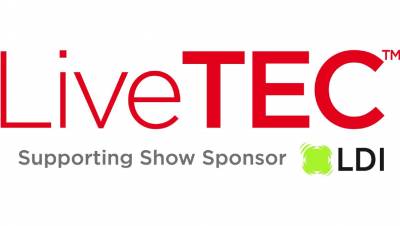

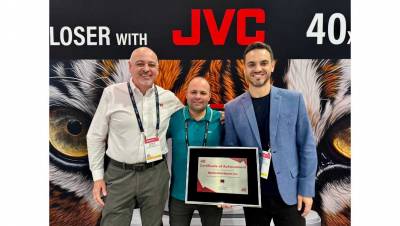





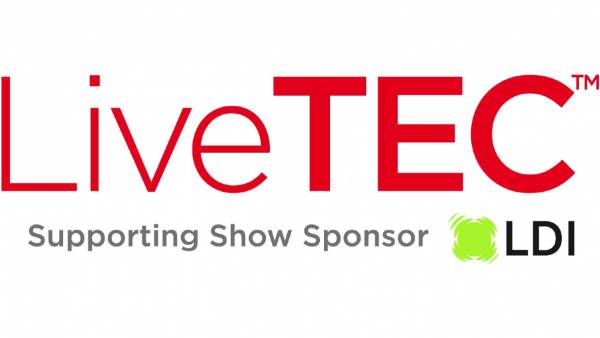
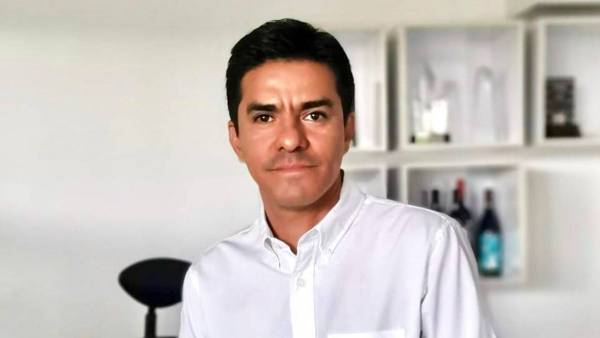

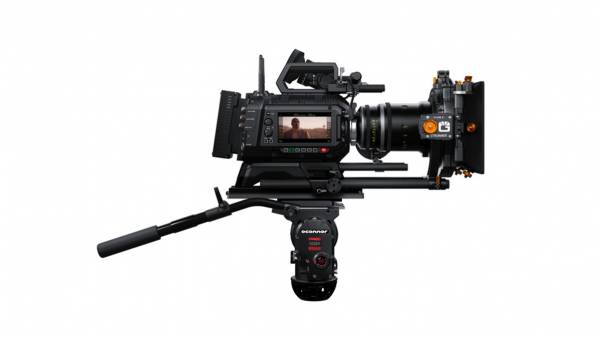









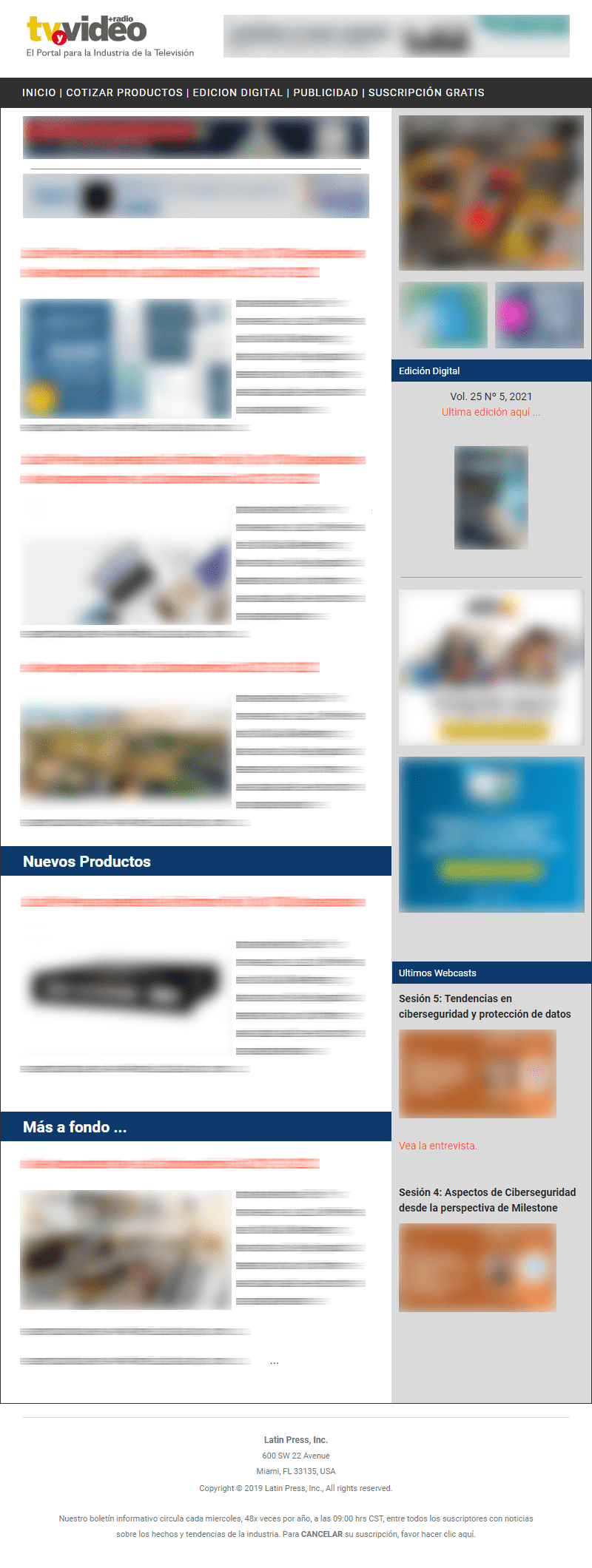
Leave your comment